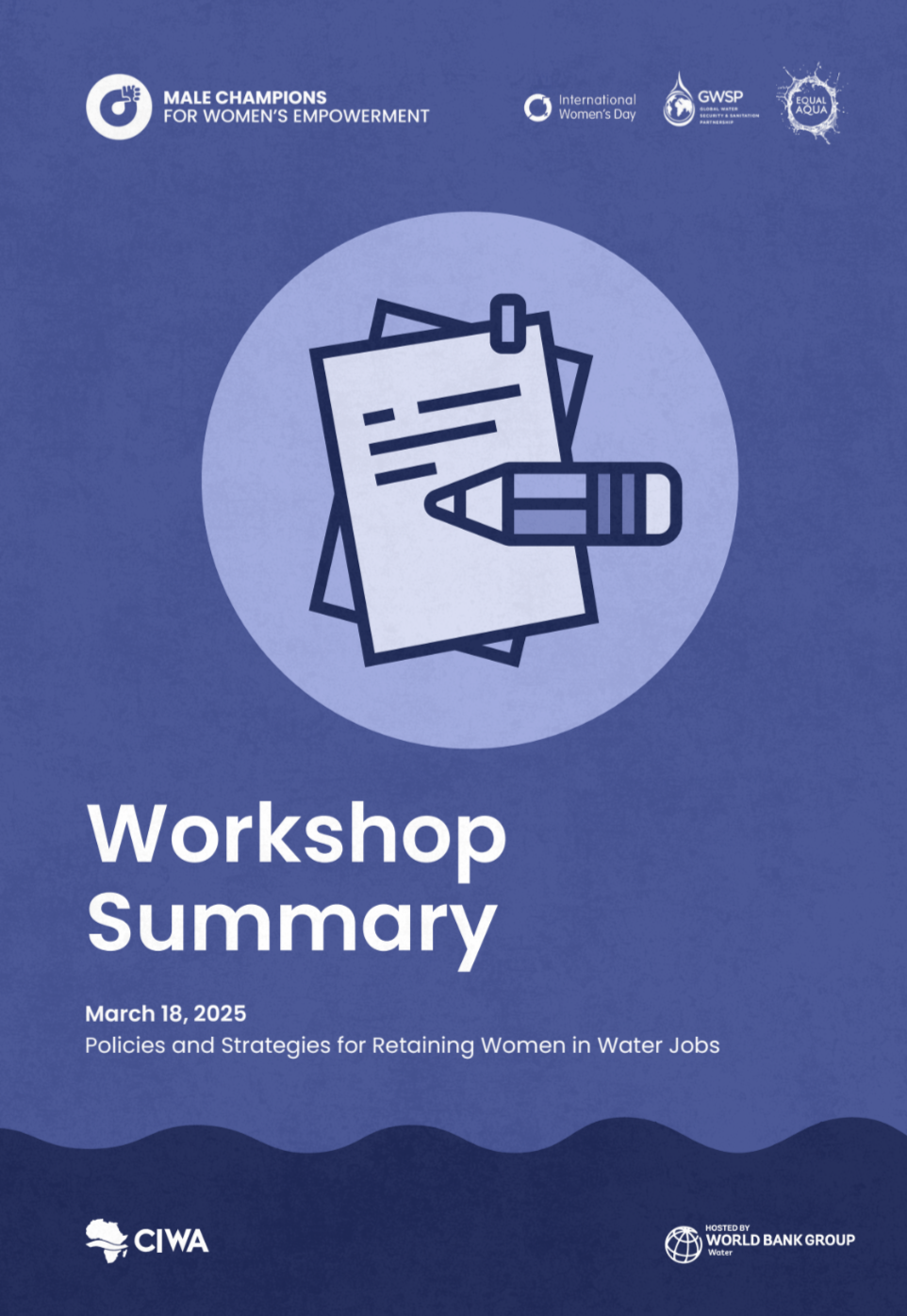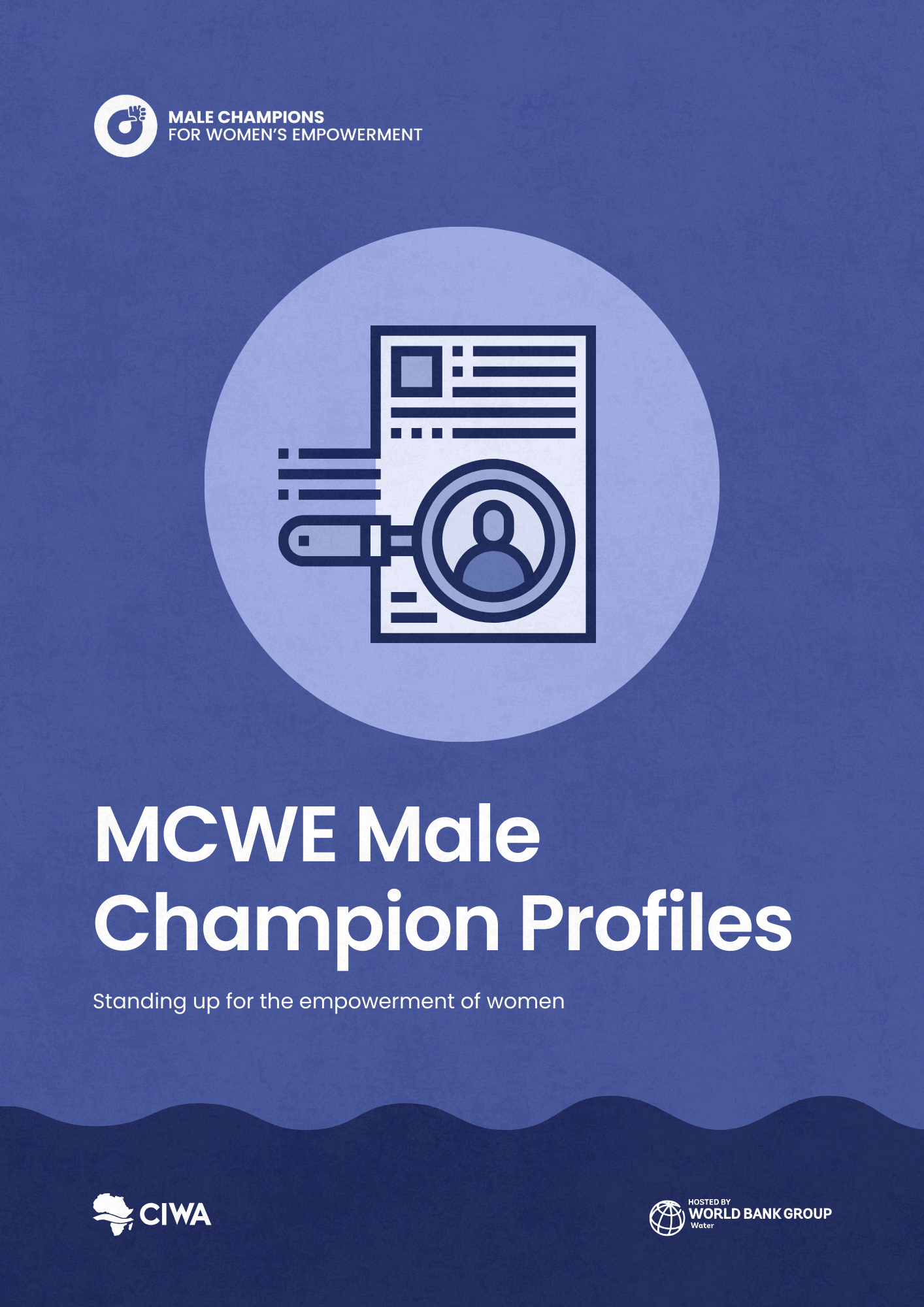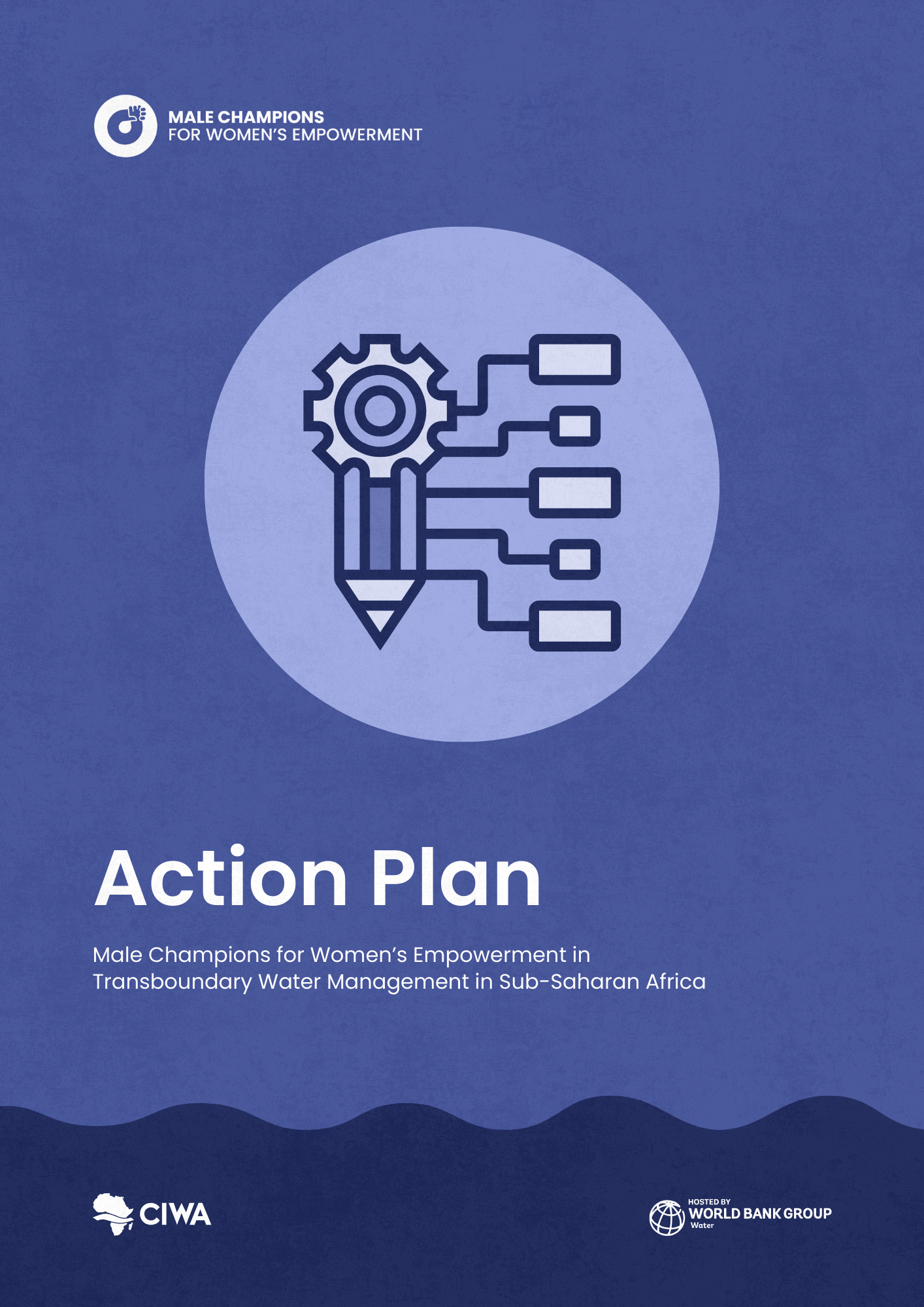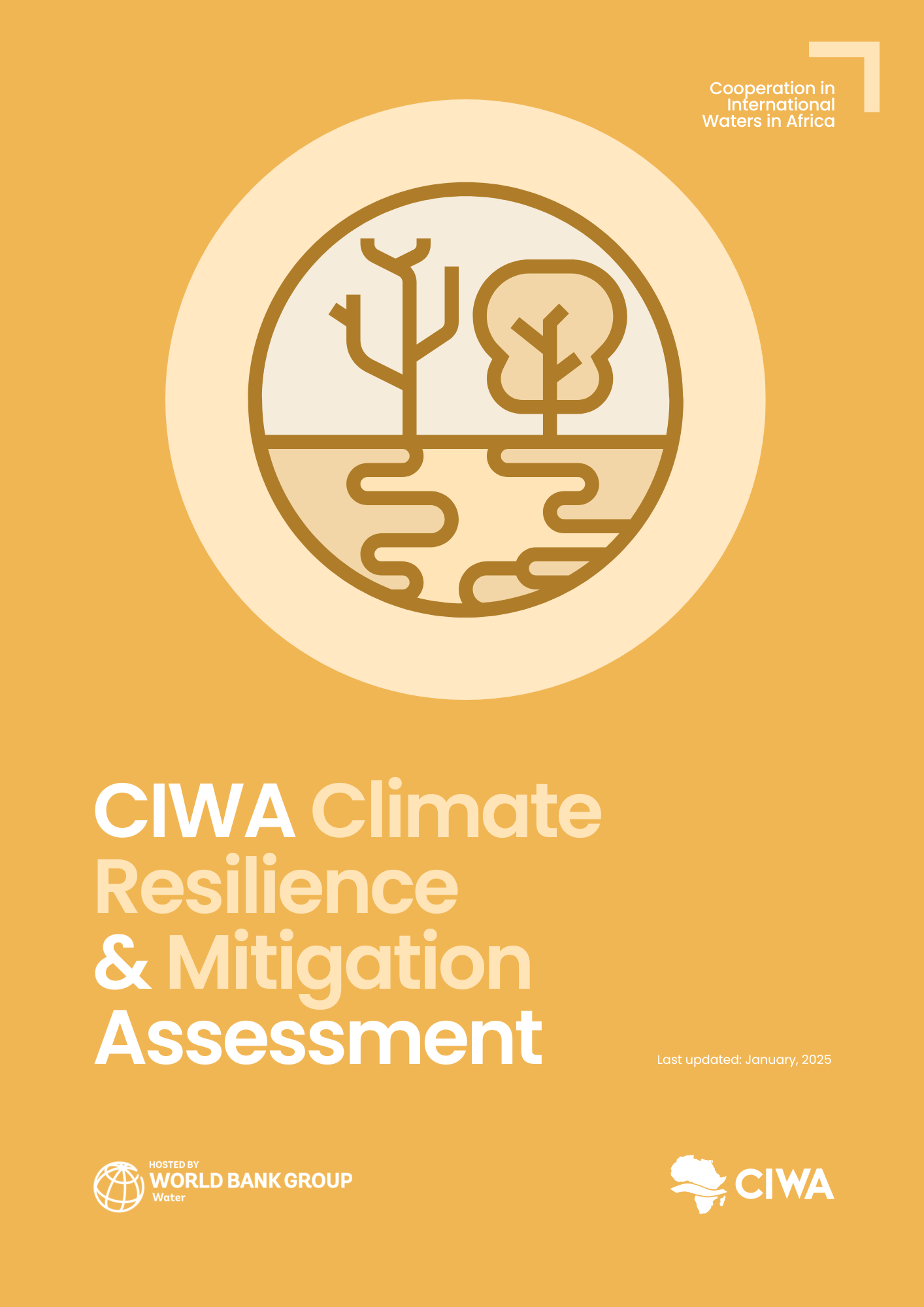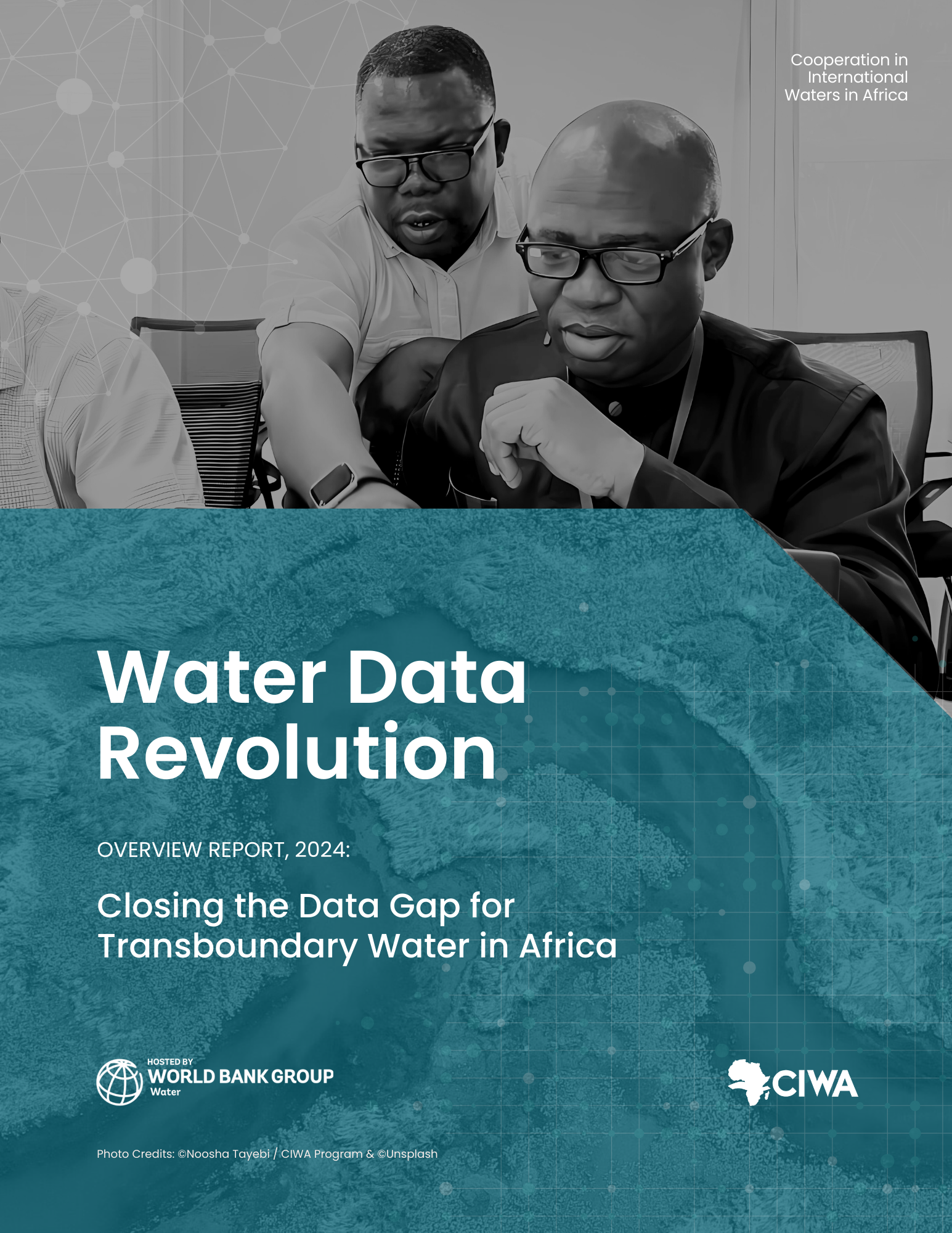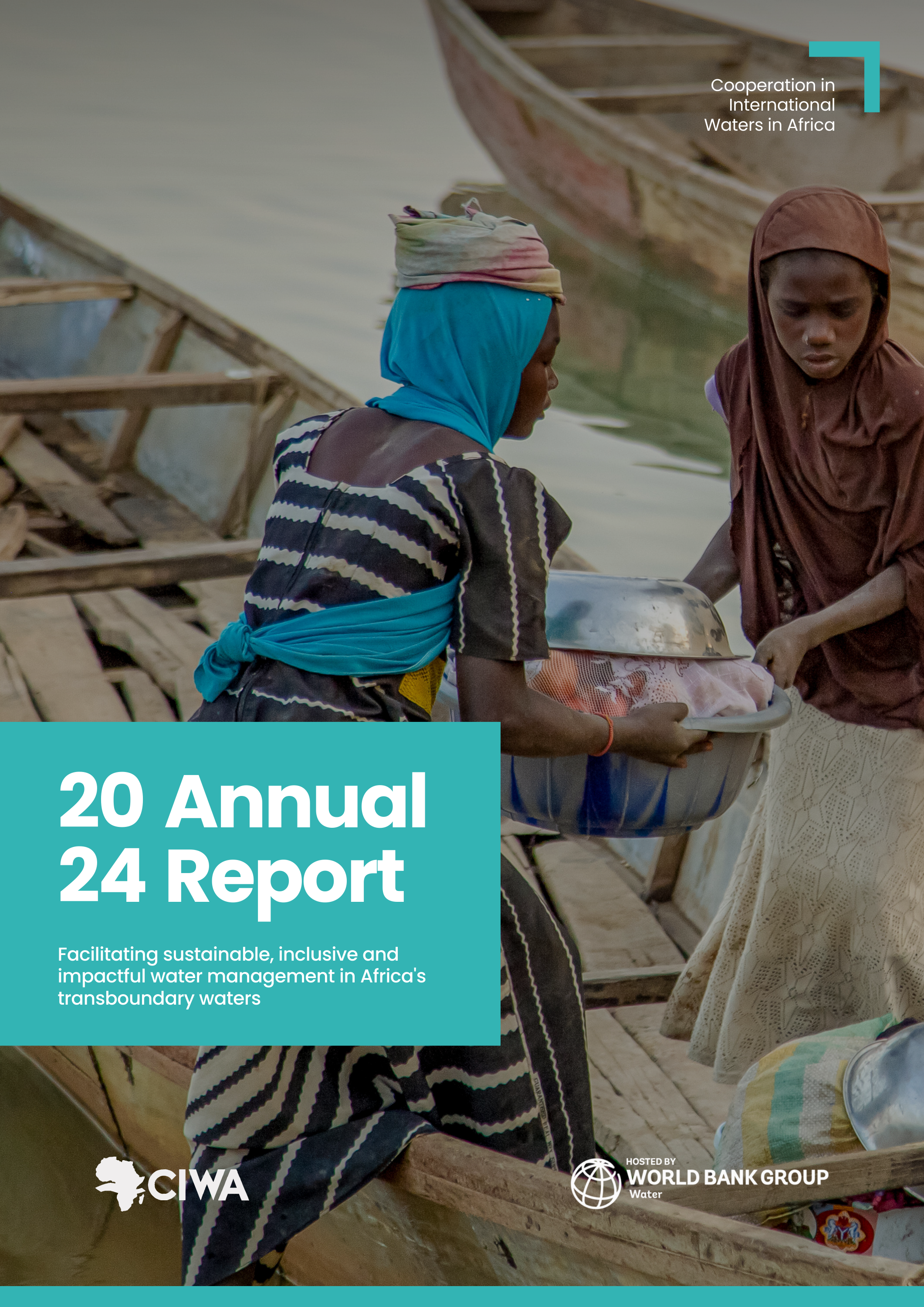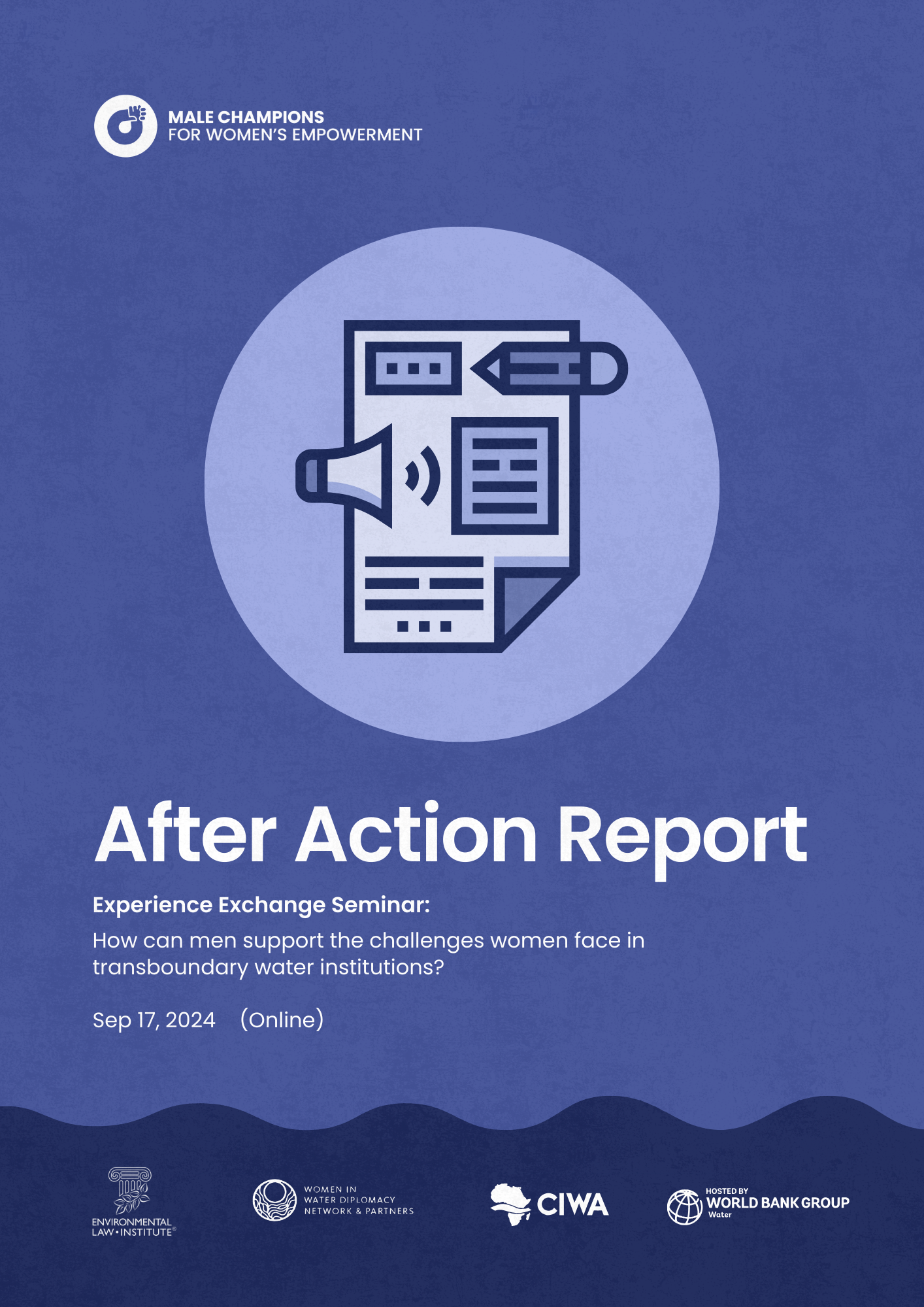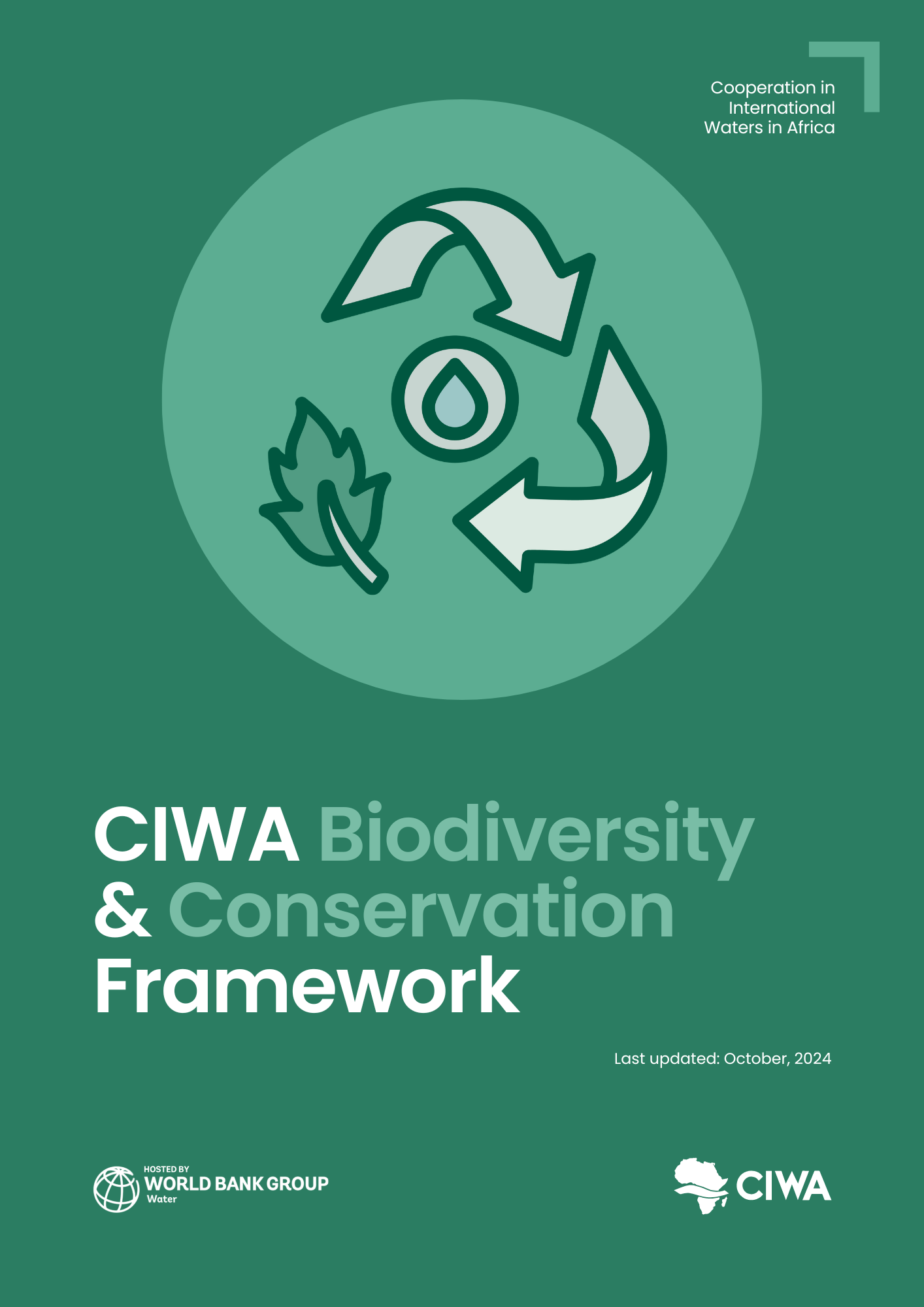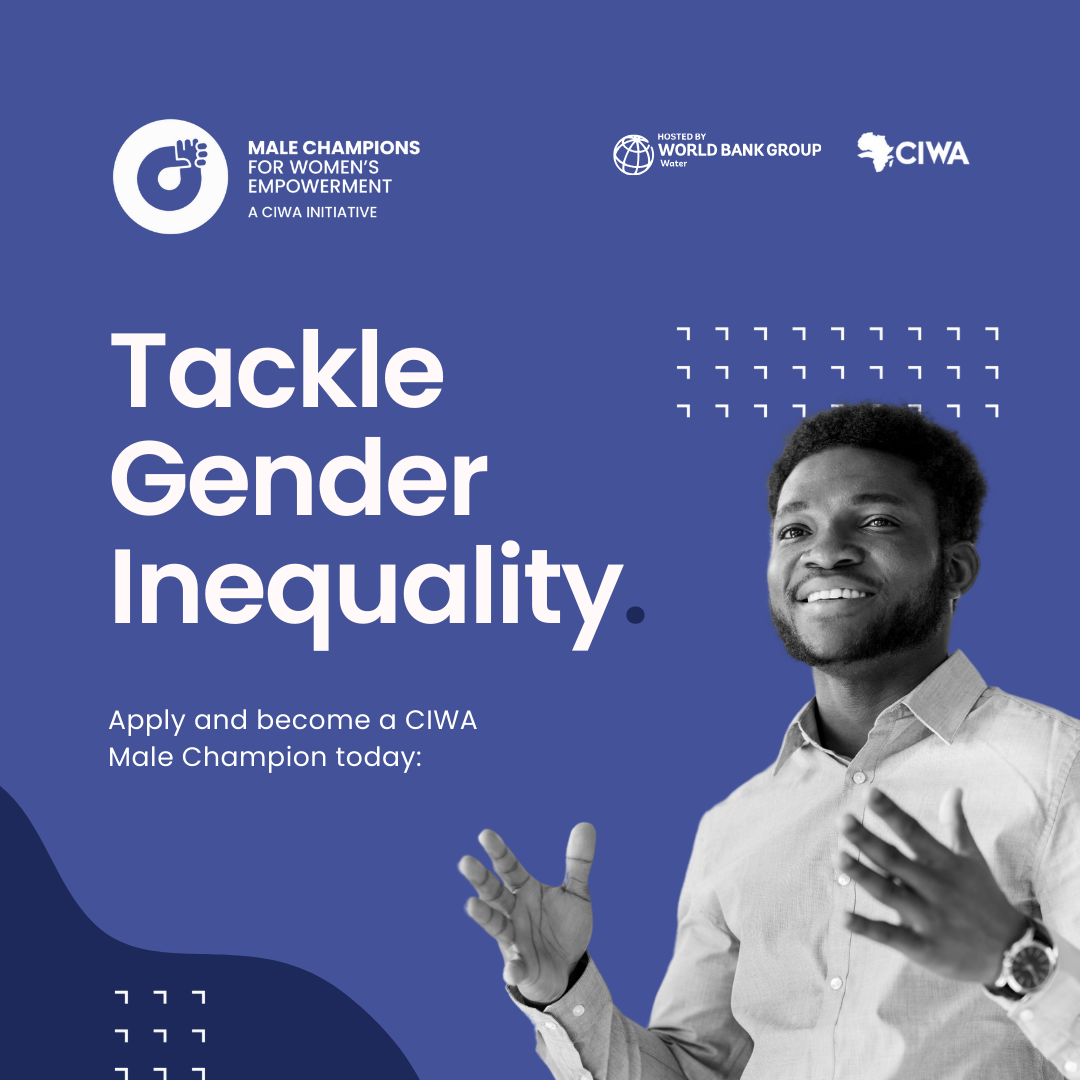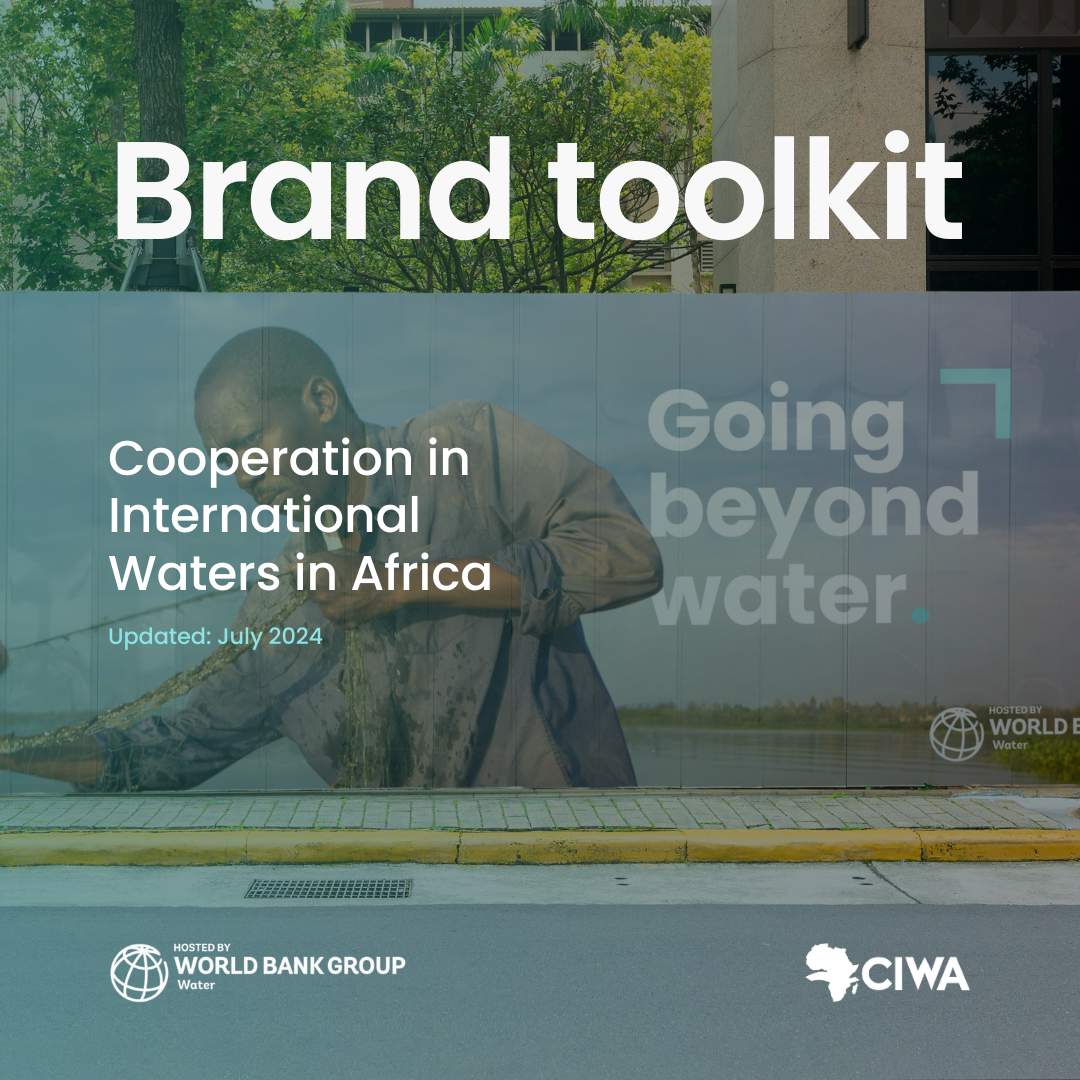Workshop Summary
This document is a summary of the workshop co-organized by the Equal Aqua Platform and the Cooperation in International Waters in Africa in March 2025, that aimed to provide water institutions in Sub-Saharan Africa with an opportunity to
explore and exchange knowledge on barriers and potential solutions to retaining women in the water
workforce.
MCWE Male Champion Profiles
This document profiles Male Champions in the Male Champions for Women’s Empowerment (MCWE) initiative, showcasing their roles, contributions, and commitment to gender equality in transboundary water management. It highlights their backgrounds, advocacy efforts, and actions supporting women’s empowerment across Africa. Led by the Cooperation in International Waters in Africa (CIWA), MCWE engages male leaders to promote inclusive decision-making and greater women’s participation in the sector.
MCWE Questions and Answers note
The Male Champions for Women’s Empowerment (MCWE) Questions and Answers document outlines the initiative’s objectives, actions, and challenges in promoting gender equality in transboundary water management. It covers CIWA’s role in gender inclusion, barriers women face, and Male Champions’ advocacy efforts. The document also addresses institutional challenges, workplace issues, and international commitments, providing context, definitions, and strategic insights for stakeholders.
MCWE Action Plan
The Male Champions for Women’s Empowerment (MCWE) Action Plan outlines a framework for engaging male leaders in advancing gender equality in Sub-Saharan Africa’s transboundary water sector. It details goals, objectives, and actions, including advocacy, policy reforms, and networking. Established by CIWA, MCWE challenges gender norms, removes barriers, and promotes women’s participation in water governance.
CIWA Climate Resilience & Mitigation Assessment
To inform its engagement in African international waters, CIWA Program undertook a strategic assessment of the scope of climate resilience and mitigation in its cumulative portfolio to identify opportunities, value proposition, and risks. This cumulative stocktaking assessment of CIWA operations, their influence, and comparative advantage on climate mitigation and resilience outcomes aims to highlight CIWA’s cross-cutting pathways to impact in the three Is and determine if there are missed opportunities for future consideration.
Water Data Revolution : Closing the Data Gap for Transboundary Water in Africa – Overview Report
Africa’s rapidly increasing population, expanding economies, and changing climate are driving increased water demand, while outdated data systems hinder effective management. Remote sensing technology offers a solution by providing continuous, reliable data for water planning and monitoring. The Water Data Revolution (WDR) initiative, launched in 2021, aims to bridge the gap between technological advancements and practical user needs. This initiative, supported by the Cooperation in International Waters in Africa (CIWA) program, connects users to data through a multifaceted approach, ensuring both utility and transparency.
CIWA ANNUAL REPORT 2024
Africa’s water resources are a huge opportunity to harness for economic growth. The CIWA Program is dedicated to leveraging these resources, as evidenced in its latest Annual Report for 2024 entitled: ‘Facilitating sustainable, inclusive and impactful water management in Africa’s transboundary waters’.
After Action Report from the Experience Exchange Seminar: How can men support the challenges women face in transboundary water institutions?
50+ participants joined an online experience exchange session focused on ‘How can men support the challenges women face in transboundary water institutions?’ convened by the Women in Water Diplomacy Network, the Environmental Law Institute and the The World Bank’s Cooperation International Waters Africa program!
Biodiversity and Conservation Framework
The objective of the CIWA Biodiversity Framework is to align CIWA’s transboundary water cooperation efforts with biodiversity conservation goals, including identifying opportunities at the intersection of transboundary water management and freshwater biodiversity conservation.
Male Champion Forum: We Recruit
Join CIWA team of Male Champions who are working to engage with other men in overcoming the barriers to women’s full participation within the transboundary domain in Africa.
CIWA Program Brand Toolkit
The new brand embodies the CIWA Program’s ambitious vision and unwavering commitment to addressing transboundary water management challenges in Sub-Saharan Africa. It highlights the significant impact CIWA aims to achieve in the region and beyond.



